What inspired the documentary The Roshans? What’s the most interesting feedback you’ve received?
Have you been successful in achieving that?
Roshan was said to be an extremely emotional man. Did not getting his ‘due’ hurt him?
You mentioned in the docu-series that your father’s death changed you from an 18-year-old teenager to an 18-year-old adult. Why?
Those days artistes were not financially savvy. Did that often leave them in a crisis?
How much did being in the Sainik school help you build your personality?
You faced rejection as a hero, were dropped from films and even asked by photographers to move out of the frame… Is it easy to forgive and forget?
Your ability to take on risks first made you a producer and then a director. How would you sum up your contribution to the film industry?
What would be your answer to intellectuals, who dub you as a maker who plays to the gallery?
Your rushing to the police station after being shot at in 2000, your fight with cancer, dealing with health issues of Hrithik and Sunaina… What explains this extraordinary strength?
Personally, did being the eldest and having to put on a tough stance, make it difficult for you to be emotionally expressive?
Yet you turn visibly emotional when you speak of Hrithik…
Anything you’d like to rewrite about your life?
One truth about life you’d like your grandchildren to know.
What inspired the documentary The Roshans? What’s the most interesting feedback you’ve received?
Some years ago, I came across a music player, which had a compilation of about 10000 songs. While listening to it, I wanted to play my father, Roshan Lal Nagrath’s songs as well. To my absolute shock and dismay, it included compositions of all music directors but none of my father’s works. I did call up the company and expressed my concern. They said they would look into the matter and get back. But they never got back with a solution. That incident left me deeply hurt. About three years ago, while sitting with Shashi Ranjan, who later directed the series, I narrated this incident to him. I shared my desire to do something for my father. Shashi suggested we make a documentary on him. The idea appealed to me. But I wondered whether today’s generation would connect with my father as easily. I suggested to Shashi that we make a documentary on the Roshans, so that when people watch our journeys, that of my brother Rajesh, my son Hrithik and mine, they discover my father’s contribution as well.
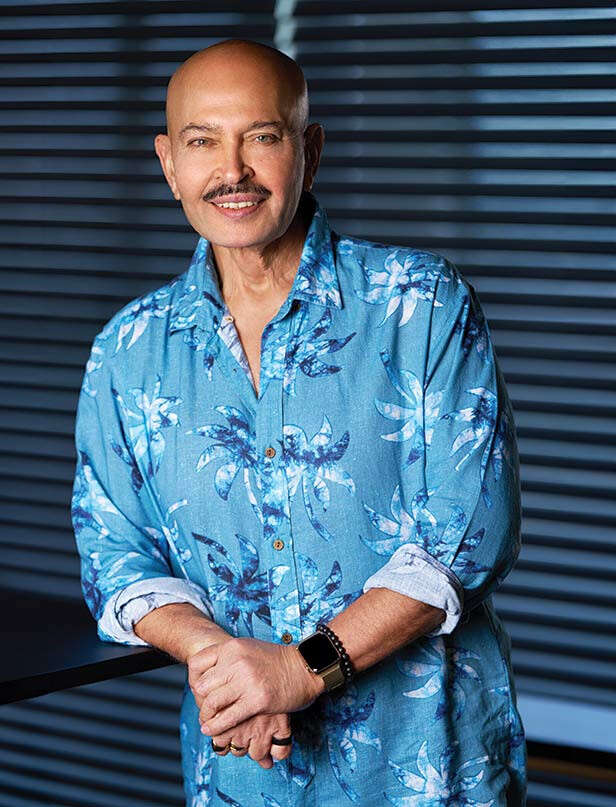
Have you been successful in achieving that?
Yes, this has been achieved by this documentary. I’ve been receiving calls and messages from all across the globe congratulating me on making this docuseries. They’re overwhelmed to know about our struggles. Those who have watched The Roshans appreciated my father’s contribution to music, which was the main purpose of the documentary, especially after having enjoyed all his songs and not knowing who the music director was.
Roshan was said to be an extremely emotional man. Did not getting his ‘due’ hurt him?
My father, much like us, kept on working. He’d finish composing for one film and would immediately dive into his next. On one occasion my mother (Ira Roshan) told him, ‘You create these beautiful qawwalis and songs. Do you think people are going to hear it?’ My father replied, ‘Dekhna, ek din aisa hoga ki log chirag lekar dhoondenge ki Roshan kahan hai.’ (One day people will beat a path to my home). My father was never hurt or bitter. He believed that his music would find its audience.
You mentioned in the docu-series that your father’s death changed you from an 18-year-old teenager to an 18-year-old adult. Why?
When my father left us, I was left alone with no family business, no factory set-up… that I could run. As an 18-year-old, I had to find my place. I had to fight to survive. I could no longer afford to be a young boy. I had to step up and take on responsibilities. So I did. That transformed me into a man.
See Also: Photos: Rakesh Roshan and Pinkie Roshan perform pooja at a Shiv temple
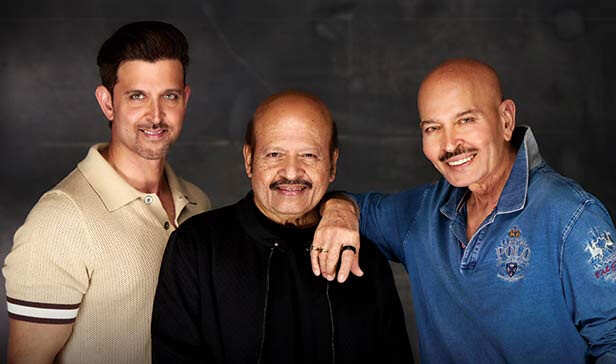
Those days artistes were not financially savvy. Did that often leave them in a crisis?
Yes, those days artistes worked solely for their passion and desire to create. Before projects rolled, we did not do Return on Investment (ROI) on Excel sheets. Films were made on faith in each other. The films that worked, got us ‘monetary valuation on the doubles’, the ones that didn’t were only temporary setbacks.
How much did being in the Sainik school help you build your personality?
It definitely taught me to be disciplined. I apply that learning to everything in my life, be it filmmaking, overcoming illness or life-threatening incidents… my attitude to life and work doesn’t change. My schooling equipped me to handle tough situations.
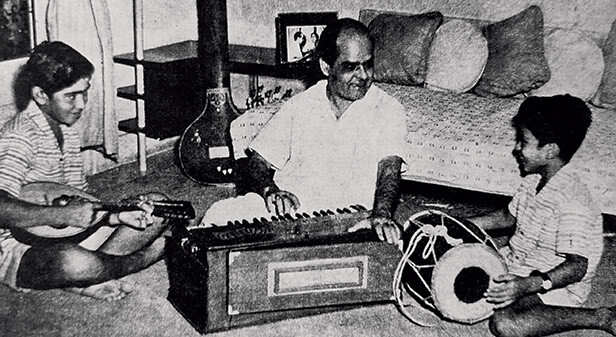
You faced rejection as a hero, were dropped from films and even asked by photographers to move out of the frame… Is it easy to forgive and forget?
I almost immediately forgive. But I don’t think it’s wise to forget. Remembering all these experiences keeps me grounded. These are lessons that have shaped my life and I hold them to be as valuable as all my highs and successes.
Your ability to take on risks first made you a producer and then a director. How would you sum up your contribution to the film industry?
I believe the failure of Rakesh Roshan as an actor gave birth to Rakesh Roshan the producer and director. I was simply passionate about cinema. I wanted to be part of films, be it in any capacity. I just kept working to find my calling. Finally, I found it as a producer and director. All the trials and errors were preparing me to take on the role of a director. As for the contributions, I have been rather amazed by the feedback post the release of The Roshans. The media regards me as a versatile filmmaker, someone who has made different kinds of cinema. In all humility, I feel satisfied as a filmmaker today.
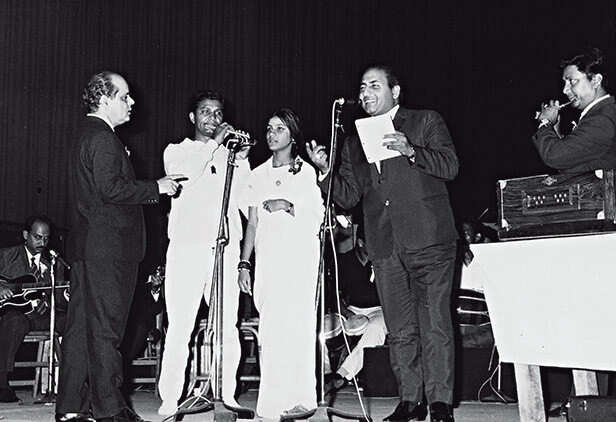
What would be your answer to intellectuals, who dub you as a maker who plays to the gallery?
I’ve always believed that cinema is nothing but entertainment. In my 17 films as a filmmaker I have worked on different subjects, diverse genres, be it Khudgarz (1987), Khoon Bhari Maang (1988), King Uncle (1993), Karan Arjun (1995), Koyla (1997), Kaho Naa.. Pyaar Hai (2000), Koi… Mil Gaya (2003) or Krrish (2006)… These are all stories with a touch of fantasy. In each, there is an element that leads to ‘suspension of disbelief’. All my films have been shot at beautiful locations, abundant in emotions and with songs that are high on recall even today. These enhance an in-cinema community viewing experience. By God’s grace all these films have struck a chord with the audience.
I believe as an Indian filmmaker, I grasp the pulse of my audience. I do entertain.
See Also: Pics: Rekha, Rakesh Roshan, Hrithik Roshan Have a Koi… Mil Gaya Reunion
Your rushing to the police station after being shot at in 2000, your fight with cancer, dealing with health issues of Hrithik and Sunaina… What explains this extraordinary strength?
It isn’t a conscious way of life. I guess early-on I was wired that way. I’ve grown up fighting to survive. That attitude is embedded in me. As for the outcomes, they are all God’s magic, His grace, which has helped us overcome these challenges.
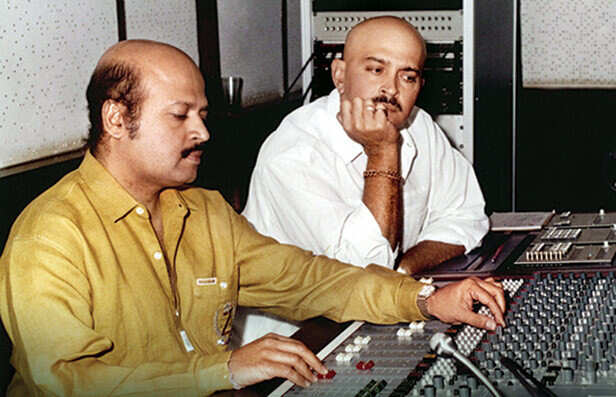
Personally, did being the eldest and having to put on a tough stance, make it difficult for you to be emotionally expressive?
I guess, maybe. When my father passed away, there was no time to sit in grief. There was a dark tunnel in front of me; I simply had to soldier on as I had a family to take care of. I was 17 and my younger brother Rajesh Roshan was only 12. Overnight I became the sole breadwinner of the family.
Yet you turn visibly emotional when you speak of Hrithik…
I’m a deeply emotional person. Rarely is that side of mine seen. But yes, as for my children and grandchildren (Hrehaan, Hridaan and Suranika), I can’t help turning emotional. They all have made me proud.
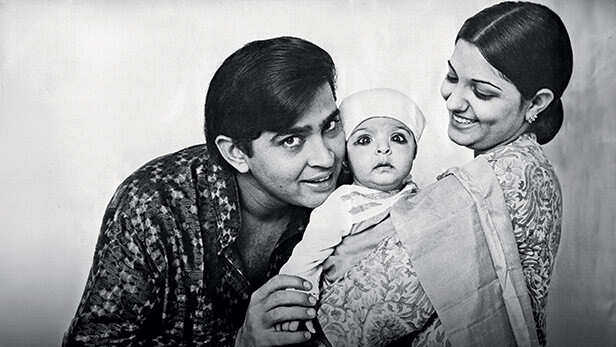
Anything you’d like to rewrite about your life?
I’ve always valued my experiences. The highs and the lows have made me the person I am today and given me the life I enjoy. But if there’s one thing I’m wistful about not having my father with us today. I’d have loved for Hrithik and my grandkids to have known him.
One truth about life you’d like your grandchildren to know.
I’m not the one to preach. I’m sure my grandkids will discover their own truths.
See Also: Pics: Rekha, Rakesh Roshan, Hrithik Roshan Have a Koi… Mil Gaya Reunion
